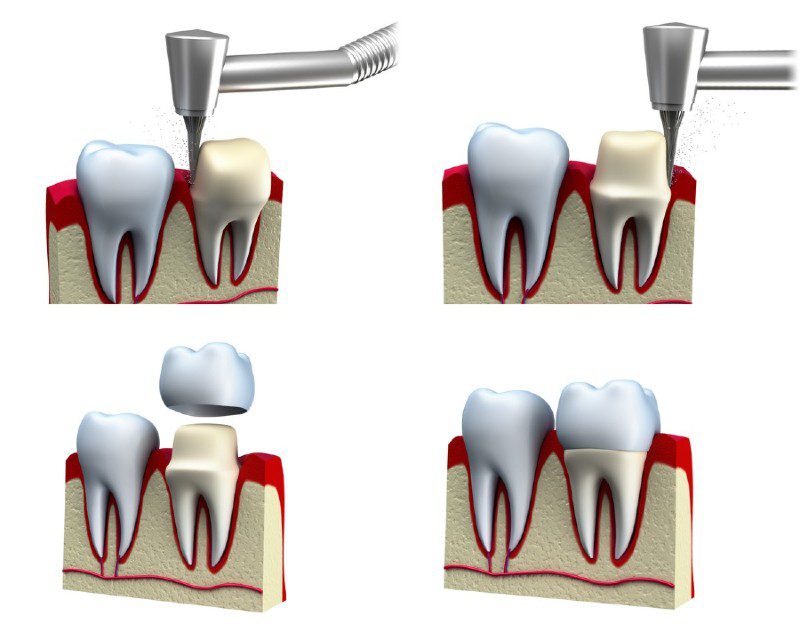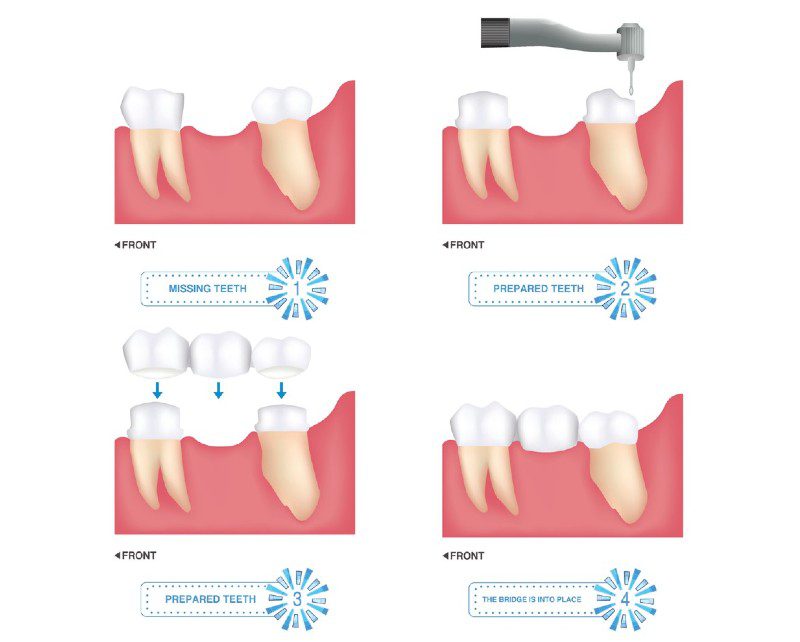Dental Crowns
Dental crowns become essential when a tooth has suffered significant damage, be it from trauma or extensive decay. They also play a crucial role in safeguarding teeth that have undergone root canal treatment, preventing them from fracturing. Crowns are a more robust solution compared to traditional fillings, inlays, and onlays. These custom-fitted caps completely encase the natural tooth, reinforcing and shielding it against fractures, especially when exposed to substantial loads.

Dental Bridges
Dental bridges are a viable treatment option for individuals with one or two missing teeth. This innovative dental procedure involves the creation of a bridge that securely connects to two or three neighboring natural teeth, following careful reshaping of those adjacent teeth. This approach offers a reliable and supportive means to restore a complete and functional dental arch.”

Materials Used In Fabrication Of Crowns And Bridges
Crowns and bridges cover the entirety of a tooth’s surface and can be fashioned from various materials, including “Full Porcelain,” “Zirconia,” or “Porcelain fused to Metal.” With advancements in materials and techniques, crowns can offer the strength, beauty, and natural tooth-like translucency necessary to restore both function and aesthetics.
The Benefits of Crowns
- Protection for Vulnerable Teeth: Crowns safeguard severely damaged or easily breakable teeth.
- Cracked Tooth Syndrome: They provide protection for cracked or fractured teeth.
- Strength and Durability: Crowns made entirely of Zirconia or Porcelain are remarkably strong and durable, and in some instances, they can replace traditional full metal crowns.
- Restoration of Worn Dentition: Crowns support and restore extensively worn or deteriorated dentition.
- Smile Makeovers: In combination with dental veneers, crowns are instrumental in comprehensive “Smile Makeover” transformations.
Your dentist will carefully select the most appropriate crown material that aligns with your aesthetic and functional requirements.
The Treatment Process
- Consultation Appointment (Approximately 30 minutes): A thorough examination and occlusion (bite) analysis are performed to identify any issues related to parafunction, such as night-grinding or clenching.
- First Appointment (Approximately 1 hour): During this phase, the teeth are prepared, and impressions are taken for the crowns. Your dentist collaborates with our in-house laboratory to craft the crowns.
- Second Appointment (Approximately 1 hour): The completed crowns are seated and permanently bonded to the teeth.
- Regular Follow-Up: Crowns are reviewed every six months to ensure their continued quality and functionality.


